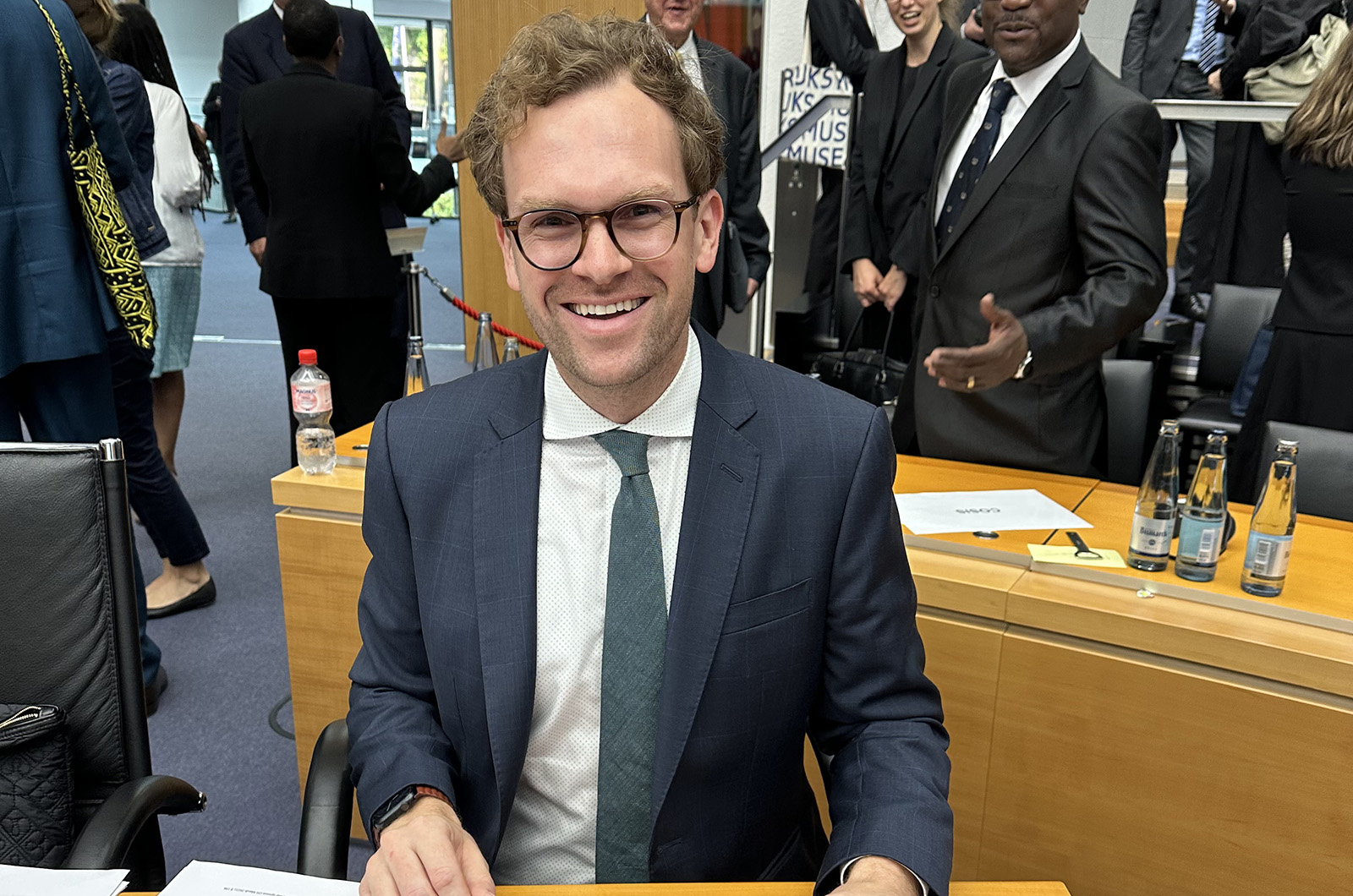Living on an island is no easy task, but for those living in small island nations, extreme weather and sea level rise due to climate change pose uniquely disastrous threats. At least, that’s what Vineyarder Duncan Pickard hopes to prove.
For the first time in history, a group of small island states from the Pacific and Caribbean have gone before international court of law this month to prove that greenhouse gases are a pollutant — and that the countries with the highest carbon emissions have a legal obligation to curb their effects.
According to the World Resources Institute, China, India and the United States are the top three carbon emitting countries, contributing 40 per cent of the world’s emissions.
Mr. Pickard grew up on the Vineyard and graduated from the regional high school in 2006. He graduated from Tufts University, Stanford Law School and Harvard University’s John F. Kennedy School of Government. Now through his role as an associate at the law firm Debevoise & Plimpton LLP, he serves on the legal team representing these nine island states.
Although he’s no stranger to island life, Mr. Pickard said the countries he’s representing are more isolated than the Vineyard, have fewer resources and disproportionately bear the brunt of climate change despite only contributing one per cent of the world’s carbon emissions.

The goal of this case, he said, is to help bring justice to those vulnerable countries. If the court rules in their favor, they could go on to seek damages from the larger nations that have put them in hot water.
“This is a really historic proceeding... that can help them in resisting what are really existential threats that they’re facing,” Mr. Pickard said in an interview with the Gazette by phone.
Hearings for the case began Sept. 11 at the International Tribunal for the Law of the Sea in Hamburg. The case revolves around laws established by the 1982 United Nations Convention on the Law of the Sea that deal with the ocean, its resources and protection of the marine environment. Unlike typical court cases, Mr. Pickard said, there is no one plaintiff or defendant, and any country in the convention can take part.
The United States, he noted, is not a part of the convention.
“There’s not just two sides,” he said. “Any interested party can refer a question to the international court in order to clarify the law.”
Over the course of 20 speeches in two days, advocates from across the globe detailed the declining quality of life in these countries due to climate change. One nation Mr. Pickard’s team represents, a small archipelago in the South Pacific called Tuvalu, is estimated to be underwater within the next few decades, he said.
“I was choking up during the proceedings,” he said. “It was an incredibly powerful moment.”
The bulk of the argument alleges that because greenhouse gases introduce heat energy and excessive carbon into the ocean, they qualify as pollutants by the convention’s own definition and become subject to all accompanying regulations. While Mr. Pickard is confident the court will rule favorably on the first piece, he hopes judges take the next step in pressuring carbon-emitting countries to cap their excessive carbon output.
“The specific obligation...is to take all measures necessary to prevent, reduce and control pollution in the marine environment,” Mr. Pickard said. “‘All measures necessary’ is an objective standard.”
Although the court isn’t expected to make a decision until early next year, island countries will continue to make their plight known at the United Nations Climate Change Conference in Glasgow this November.
“The small island states have always advocated for themselves and will continue to advocate for themselves,” Mr. Pickard said. “But [with this decision] we’ll have an authoritative statement about what international law requires.”
Eventually, he hopes that a favorable decision can serve as precedent for international relations down the line, whether countries choose to move into contentious proceedings or not. Additionally, the court’s decision could have an impact on domestic legislation, Mr. Pickard said, opening the door for countries to mandate studies on the environmental impacts of any planned marine activities in their waters.
“That could be a very powerful tool for citizens in governments looking to reduce carbon emissions,” he said.
Mr. Pickard now lives in New York but he continues to serve on the advisory board of MVYouth. If nothing else, he hopes islanders of all kinds treat the hearings as a portent of what’s to come.
“This case is an opportunity for people to raise awareness about the impacts small island states are facing, but it’s also a way to raise awareness of how climate change will affect us all — particularly Martha’s Vineyard,” he said.







Comments (1)
Comments
Comment policy »